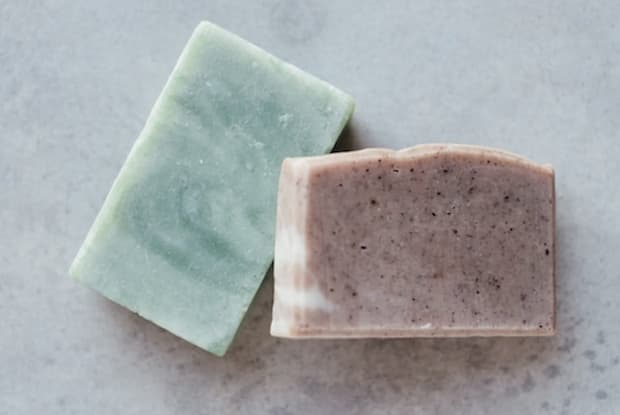Table of Contents
IV. What Foods are Skin-Friendly?
V. Stress Management Techniques
Good skin is easy to take for granted, but the importance of skincare becomes apparent in the face of a skin condition. Skin disorders like acne, rosacea, and psoriasis affect roughly 84.5 million Americans. [1] For those who have healthy skin, prevention should be the focus. For those who are dealing with a skin condition, many medications are available. Retin A (Tretinoin) is often prescribed to those with acne, and Oracea (doxycycline), Aczone (dapsone), and Tazorac (tazarotene) can be effective against rosacea and psoriasis. Read on to learn more about ways to protect your skin health.
The Skin and the Sun
The sun is associated with many great things like going to the beach and helping with vitamin D synthesis. Still, it is important to keep in mind that sun exposure is the leading cause of age spots and wrinkles. Too much sun can increase the risk of skin cancer, making sun protection all that more important.
Applying sunscreen can allow you to participate in outdoor activities while keeping your skin shielded. A broad-spectrum sunscreen with a minimum SPF of 15 is recommended, but those with sensitive skin may need to use stronger sunscreen. Remember that sunscreen should be reapplied every two hours, and even more frequently if you are swimming or sweating. [2] If you don’t have sunscreen readily available, seeking shade may be your next best option. Ultraviolet rays from the sun can cause skin damage in just 15 minutes. By staying in the shade and avoiding direct contact with ultraviolet rays, you can significantly reduce your risk of skin damage and skin cancer. Ideally, you would want to wear sunscreen even when you are in the shade. [3] When you are choosing clothes with sun protection in mind, you should consider: Hats are great for sun protection, but a baseball cap does not adequately protect your ears and the back of your neck. A hat with a large brim that goes all the way around may be more suitable for sun protection. You can complete your outfit with a quality pair of sunglasses to protect the sensitive skin around your eyes. [3] Smoking is a known factor that causes skin aging. Research shows that smoking narrows the blood vessels of the skin, decreasing the blood flow and making the skin paler. This blocks access for the skin to receive oxygen and nutrients that keep it healthy. Smoking also reduces the strength and elasticity of your skin by damaging collagen and elastin. If you smoke, you are at a higher risk of developing squamous cell skin cancer than a non-smoker. Because the negative impact of smoking is clear, it may be necessary to quit smoking if healthy skin is a priority. [2] A common mistake when it comes to cleansing the skin is doing too much and washing too hard. To improve skin health, a gentle touch is required. This means you should pat dry with a towel instead of rubbing so that moisture is retained. It may be counterintuitive, but long baths may actually do more harm than good. By limiting bath time and using warm water instead of hot water, you give your skin a better chance of maintaining oil balance and staying hydrated. When it comes to soap, stronger doesn’t mean better. Just like hot water, strong soaps can strip your skin of important oils. To improve your skin health, choose mild cleansers over strong soaps. [2] What you eat affects all aspects of your body, so a healthy diet can significantly improve your skin health. Research shows that a diet rich in fish oil and low in processed carbohydrates reduces the risk of acne. [2] Avoiding unhealthy fats can promote healthier skin as well. A healthy, skin-friendly diet will consist primarily of fruits, vegetables, whole grains, and lean proteins. [2] When humans are under stress, the body automatically redirects nutrients and other resources from the skin to more essential organs. This may help, for example, if you are being chased by a wild animal. But societal structures have made it so that humans are not constantly under the physical threat for survival anymore. Therefore, rerouting resources away from the skin may not be necessary and can be more harmful than beneficial. [4] Under stress, the body experiences hormone fluctuations that include increases in cortisol. Cortisol can cause acne breakouts, so practicing techniques that reduce stress may help. Things you can do to reduce stress include: By taking steps to protect your skin, you will give your skin the chance to revitalize. If you have particularly sensitive skin, or if you know that you are prone to acne, rosacea, or psoriasis, talk to your doctor about preventive methods or treatment plans. Many of these tips can be combined with medications like Retin A (Tretinoin), Oracea (doxycycline), Aczone (dapsone), or Tazorac (tazarotene). The content in this article is intended for informational purposes only. This website does not provide medical advice. In all circumstances, you should always seek the advice of your physician and/or other qualified health professionals(s) for drug, medical condition, or treatment advice. The content provided on this website is not a substitute for professional medical advice, diagnosis, or treatment.
a. Use Sunscreen
b. Shade
c. Dress to Protect
Smoking and Skin Aging
Taking it Easy

What Foods are Skin-Friendly?
Stress Management Techniques

